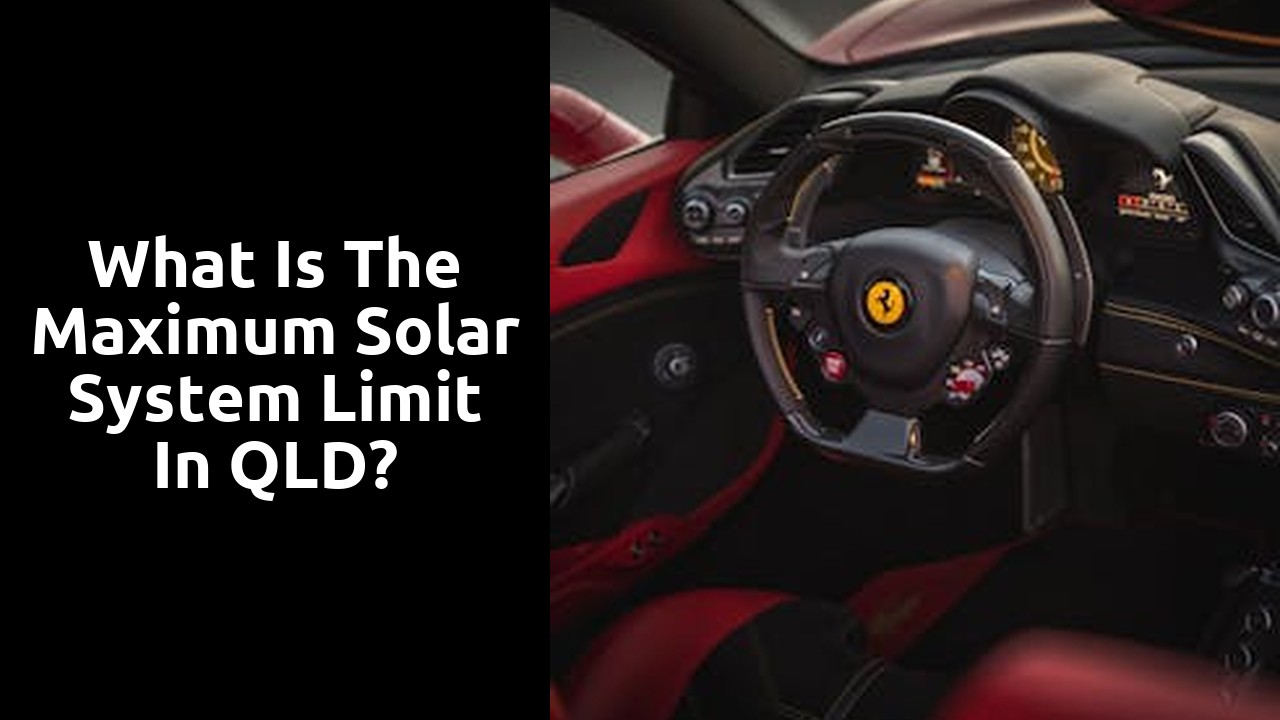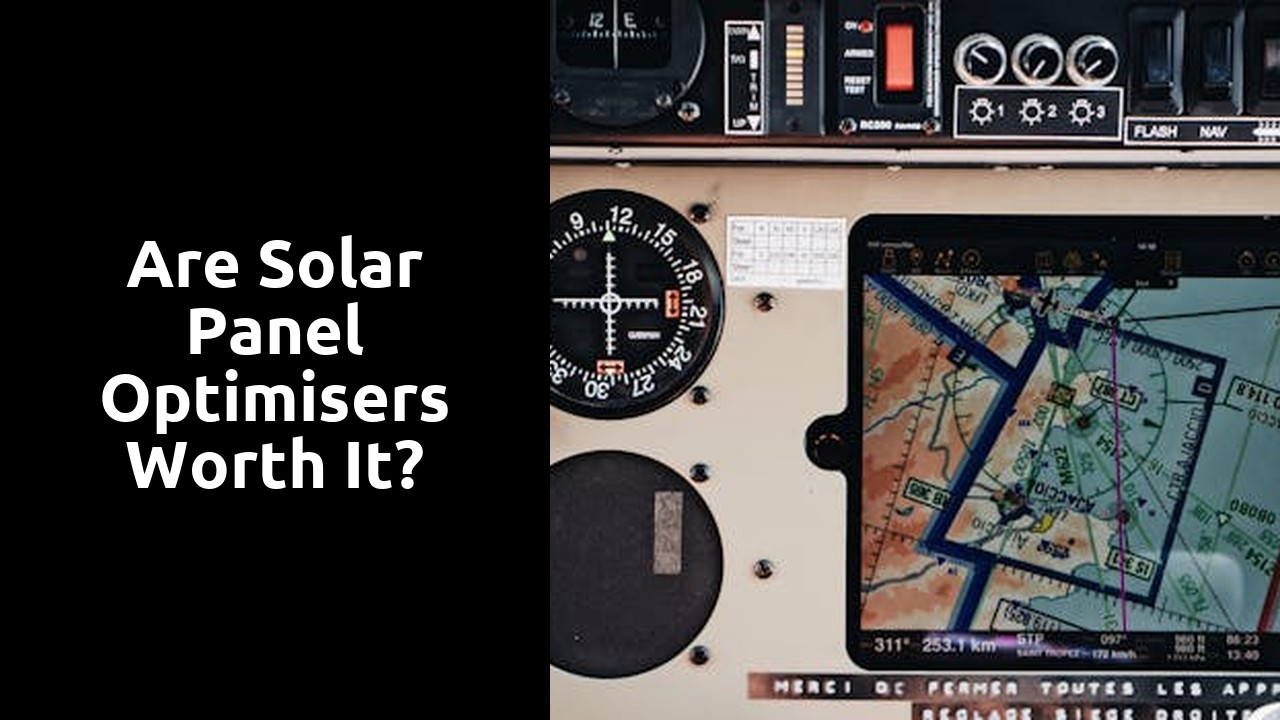
Installation Considerations for Solar Systems
When considering the installation of solar systems in Queensland, it is important to take into account various factors to ensure the effectiveness and efficiency of the system. The orientation and tilt angle of the solar panels play a significant role in harnessing maximum sunlight, therefore, it is crucial to position them correctly. Additionally, shading from nearby structures or trees should be minimized to allow the panels to receive optimal sunlight throughout the day.
Moreover, the size of the solar system should be chosen based on the household's energy consumption patterns to ensure that it can meet the electricity needs effectively. Working with a reputable installer who adheres to industry standards and guidelines is essential for a successful installation process. By carefully considering these factors, homeowners can achieve Solar Panel System Optimization and maximize the benefits of solar energy for their homes.
Ensuring Compliance with Standards
When it comes to ensuring compliance with standards for solar panel system installation in Queensland, it is imperative to adhere to the regulations set by the Clean Energy Council (CEC). These guidelines are designed to promote safety, efficiency, and reliability in solar energy systems. By following the CEC standards, installers can guarantee that the solar panel system meets the necessary requirements for optimal performance and longevity.
In addition to CEC standards, it is essential to comply with all relevant local regulations and building codes. Ensuring that the solar panel system is installed correctly and in accordance with these standards is crucial for maximising energy production and efficiency. By adhering to these guidelines, homeowners can achieve Solar Panel System Optimization and enjoy the benefits of a reliable and cost-effective renewable energy source.
Monitoring and Maintenance of Solar Systems
To ensure the ongoing efficiency and effectiveness of solar panel systems, regular monitoring and maintenance are essential steps. Monitoring involves keeping track of the system's performance through data collection and analysis. By monitoring key metrics such as energy production, consumption patterns, and any deviations from expected performance, homeowners can detect potential issues early on and take necessary corrective actions.
Maintenance tasks for solar panel systems typically include regular cleaning to remove dirt, dust, and debris that can accumulate on the panels and hinder their ability to absorb sunlight efficiently. In addition to cleaning, inspections should be conducted periodically to check for any physical damage or wear and tear on system components. By adhering to a proactive schedule of monitoring and maintenance, solar panel system optimization can be maximized, ensuring optimal energy generation and cost savings for the long term.
Best Practices for LongTerm Efficiency
To ensure the long-term efficiency of solar panel systems, regular maintenance and monitoring are paramount. Cleaning the panels regularly is vital to maximize energy output, as accumulated dirt and debris can hinder the absorption of sunlight. Additionally, inspecting the wiring and connections to identify any issues that may impact performance is crucial. By conducting routine checks and promptly addressing any problems, the overall efficiency and lifespan of the solar panel system can be significantly enhanced.
Moreover, investing in quality components and materials is essential for long-term efficiency. Opting for high-performance solar panels and inverters, along with durable mounting systems, can contribute to the system's overall effectiveness and longevity. Implementing effective Solar Panel System Optimization strategies, such as shading analysis and tilt optimization, can further improve the efficiency of the system. By focusing on these best practices, solar panel system owners can ensure optimal performance and sustainable energy generation in the long run.
Future Developments in Solar System Regulations
As technology continues to evolve in the solar energy sector, there are ongoing discussions about new regulations that could further enhance the efficiency and safety of solar panel systems in Queensland. The focus is shifting towards ensuring that installations not only meet current standards but also incorporate innovations that promote Solar Panel System Optimization. These future developments will likely involve greater emphasis on data monitoring, feedback systems, and smart technologies to maximize the performance of solar systems.
Moreover, anticipated changes and updates in regulations are expected to address issues such as grid integration, system reliability, and environmental impact in the solar energy sector. With sustainability being a key driver in the renewable energy industry, future regulations may concentrate on promoting best practices for the long-term efficiency of solar panel systems. This could include requirements for better system maintenance, regular performance assessments, and the use of advanced tools for Solar Panel System Optimization.
Anticipated Changes and Updates
Anticipated Changes and Updates
The Queensland government is continuously evaluating the regulations surrounding solar panel installations to keep up with advancements in technology and changes in energy policies. One of the anticipated updates includes a focus on promoting Solar Panel System Optimization to ensure maximum efficiency and effectiveness of solar systems across the state. By emphasizing the optimization of solar panel systems, homeowners and businesses can expect to see improved performance and increased cost savings over the long term.
Furthermore, there is a growing emphasis on integrating smart technology and monitoring systems into solar installations to enhance overall system performance and ensure compliance with evolving standards. This move towards smart solar solutions will enable users to track their energy production and consumption in real-time, allowing for better control and management of their solar power systems. As these changes and updates unfold, it is essential for stakeholders in the solar industry to stay informed and adapt their practices to align with the latest regulations and best practices for Solar Panel System Optimization.
FAQS
What is the maximum solar system limit in Queensland (QLD)?
The maximum solar system limit in Queensland is currently set at 100kW for residential properties and 5MW for commercial properties. ####
Can I install a solar system larger than the maximum limit in QLD?
In some cases, it may be possible to install a solar system larger than the maximum limit in QLD, but this would require special approvals and adherence to specific regulations. ####
Is there a specific process to follow when installing a solar system in QLD?
Yes, when installing a solar system in QLD, it is important to follow the guidelines set by the Clean Energy Council and obtain necessary approvals from the local authorities. ####
What are the key considerations for ensuring compliance with standards in QLD?
To ensure compliance with standards in QLD, it is crucial to use approved solar panels, inverters, and other components, employ accredited installers, and adhere to safety and quality standards. ####
How should I monitor and maintain my solar system in QLD?
Regular monitoring of your solar system's performance and maintenance checks by qualified professionals can help ensure its optimal efficiency and longevity in QLD. ####
What are the best practices for long-term efficiency of solar systems in QLD?
Implementing regular cleaning, monitoring for shading issues, and promptly addressing any maintenance needs are some of the best practices for ensuring long-term efficiency of solar systems in QLD. ####
Are there any anticipated changes and updates in solar system regulations in QLD?
Yes, there are anticipated changes and updates in solar system regulations in QLD, including potential revisions to incentives, safety standards, and grid integration requirements. Stay informed through relevant authorities and industry updates.
